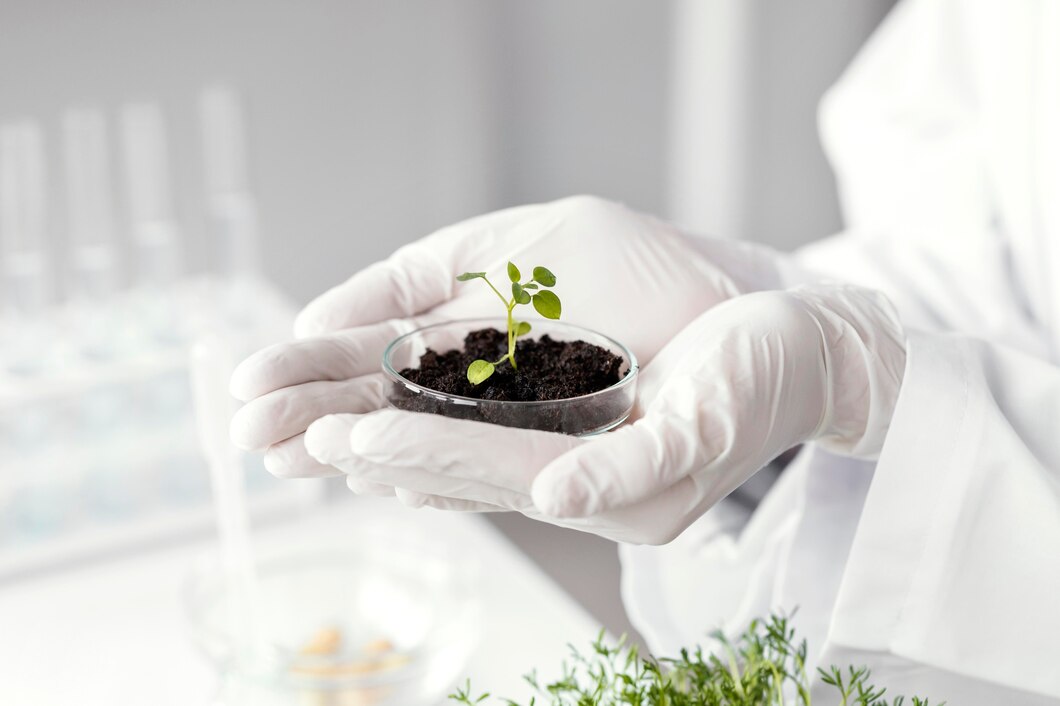BOTANY AND PLANT PATHOLOGY
Botany and Plant Pathology focuses on research related to plant physiology, pathology, and interactions with the environment. The journal seeks to promote innovations that improve plant health and agricultural practices.

Botany and Plant Pathology journal aims to be a leading platform for the dissemination of research, reviews, and studies focused on the science of plant biology and the understanding of plant diseases. The journal's primary objective is to advance the knowledge of plant physiology, ecology, genetics, and interactions with pathogens, contributing to the development of sustainable agricultural practices and the conservation of plant biodiversity. By publishing high-quality, peer-reviewed articles, the journal seeks to support the global community of botanists, plant pathologists, and agricultural scientists in their efforts to improve plant health and productivity.
All the manuscripts published by Botany and Plant Pathology undergo rapid, quality and quick review processing by eminent editorial and review team maintaining high standards and ethics of publishing.
The scholarly content published online will be freely available to every reader anywhere in the world to read, download, copy, reuse and distribute, provided that the original work is properly cited.
Authors may submit their valuable work either via the online submission form or via email to the editor’s office at submissions@asterpublications.com
Instructions for Authors
Submit Your Query
Scope
The scope of Botany and Plant Pathology includes, but is not limited to:
Plant Physiology and Biochemistry: Research on the fundamental processes of plant life, including photosynthesis, respiration, nutrient uptake, and hormone signaling.
Plant Genetics and Genomics: Studies on the genetic makeup of plants, including gene expression, molecular breeding, genetic modification, and the application of genomics in plant science.
Plant Ecology and Evolution: Articles exploring the interactions of plants with their environment, including studies on plant communities, ecosystem dynamics, and evolutionary adaptations.
Plant-Microbe Interactions: Research focused on the interactions between plants and microorganisms, including symbiotic relationships, mycorrhizal associations, and pathogenic infections.
Plant Pathology: Studies on plant diseases caused by pathogens such as fungi, bacteria, viruses, and nematodes, including disease diagnosis, epidemiology, and integrated disease management strategies.
Plant Disease Resistance: Research on the mechanisms of plant resistance to pathogens, including the development of disease-resistant plant varieties through traditional breeding and biotechnological approaches.
Agricultural Botany: Articles addressing the application of botanical research to agriculture, including crop improvement, pest management, and sustainable farming practices.
Plant Biotechnology: Studies on the application of biotechnological tools in plant science, including tissue culture, genetic engineering, and the use of molecular markers in plant breeding.
Plant Conservation and Biodiversity: Research on the conservation of plant species and ecosystems, including studies on endangered species, habitat restoration, and the impact of climate change on plant biodiversity.
Weed Science: Articles on the biology, ecology, and management of weeds, including the development of sustainable weed control strategies and the impact of invasive plant species.
Plant Physiology Under Stress: Research on the physiological responses of plants to abiotic and biotic stress factors, including drought, salinity, temperature extremes, and pathogen attacks.
Plant-Environment Interactions: Studies on how plants interact with and adapt to changing environmental conditions, including research on climate change impacts on plant health and productivity.
Mycology and Phytopathogenic Fungi: Research focused on the role of fungi in plant health, including studies on fungal pathogens, mycotoxins, and the development of fungal-resistant plant varieties.
Applied Plant Pathology: Articles that focus on the practical application of plant pathology research to solve real-world problems in agriculture and forestry, including case studies and field trials.
Phytopathology and Disease Control: Research on innovative methods for controlling plant diseases, including chemical, biological, and cultural control methods, and the development of new plant protection products.
Plant Biotic Interactions: Studies on the interactions between plants and other living organisms, such as insects, animals, and other plants, including pollination biology and plant competition.
Case Reports and Field Studies: Detailed reports on specific plant disease outbreaks, unusual plant-pathogen interactions, and successful disease management strategies in different agricultural settings.
Technological Innovations: Articles exploring the use of new technologies in botany and plant pathology, including remote sensing, precision agriculture, and the use of big data and AI in plant science.
Educational and Outreach Initiatives: Discussions on the education and training of the next generation of botanists and plant pathologists, including curriculum development and public engagement in plant science.
Letters to the Editor and Commentary: Opinion pieces, expert commentaries, and discussions on recent publications, emerging trends, and current issues in botany and plant pathology.
Key Topics
- Plant Sciences
- Agricultural Sciences
- Agronomy and Crop Science
- Plant Cell Biology
- Biotechnology
- Microbiology
- Phytochemistry
- Pharmacology
- Ethnobotany
- Environmental Science
- Plant-Microbe Interactions
- Plant Nutrition
- Plant Pathology
- Plant Anatomy
- Agricultural Chemistry
- Food and Environment
- Plant Reproduction
- Plant Physiology
- Plant Biochemistry
- Plant Genetics
- Paleobotany
Botany and Plant Pathology follows the Committee on Publication Ethics (COPE) Guidelines for issues of fraud, image manipulation, and duplicate publication.
